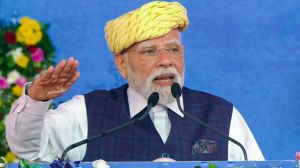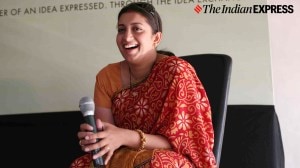Asian Development Bank revamp in the works
THAILAND, MAY 8: The multilaterally owned Asian Development Bank (ADB) may be in for a revamp. Its governors agreed at the end of a three ...

THAILAND, MAY 8: The multilaterally owned Asian Development Bank (ADB) may be in for a revamp. Its governors agreed at the end of a three day annual meeting on Monday to seriously explore whether the financially strapped bank needed a capital increase.
Most ADB members gave the thumbs up for a study into an increase in its $ 48 billion capital, although the United States, the bank’s biggest shareholder, objected, saying the ADB instead should be more selective in its lending to keep costs in line.
ADB President Tadao Chino said at the closing of the meeting: "I have noted broad support from governors to initiate a study of ADB’s resource requirements. In order to fight poverty across developing Asia… ADB needs adequate resources."
He acknowledged however that some European countries had insisted that approving a study did not mean that they would eventually approve a capital increase. "That is a legitimate statement," Chino said, adding the bank would conduct a major review of its future role and priorities in order to justify more shareholder cash.
The ADB lends about $ 5 billion annually to mostly least developed Asian countries for socio-economic upliftment projects.
But its lending in the wake of the Asian financial crisis, particularly to Indonesia and South Korea, rocketed to $9.3 billion in 1997, which eroded its financial resources. The bank has since raised some lending rates to make up forthe capital erosion, a move that has been greeted with criticism.
ADB officials said this capital and policy review process could take some time to complete.
Officials from ADB member countries, bankers, business leaders and social activists at the meeting lauded the bank’s noble priorities but said it needed to be more focused in future.
China’s Finance Minister Xiang Huaicheng said that higher ADB lending rates on its soft loans had placed a greater burden on borrowers and seriously hampered the effectiveness of its poverty reduction strategy.
"It is necessary for the bank to further improve investment management, reduce cost and improve the quality of project implementation," he added.
Social activists and Thai protesters demonstrating against ADB funding for controversial projects said the bank needed to further fine-tune its dealings with non-governmental organisations (NGOs) to avoid unnecessary conflict.
During the ADB meeting hundreds of local protesters demonstrated at various meeting venues against the bank’s lending to Thailand for projects opposed by NGOs.
An ADB spokesman said the bank was now digesting its dealings with NGOs and hoped in future to have better dialogue with them. "This is a new experience for us. But we are learning fastand will find ways to relate better with NGOs," he said.
Paiboon Wattanasiritham, a Thai government official attending the meeting, said it was a welcome development that the ADB would be more focused on solving the poverty problem.
"The ADB is good when it comes to setting objectives on poverty reduction. But in the implementation process, it needs to hold more discussions," he added. "Setting objectives alone is not enough. ADB executives should change the way they work."
Photos



- 01
- 02
- 03
- 04
- 05




























